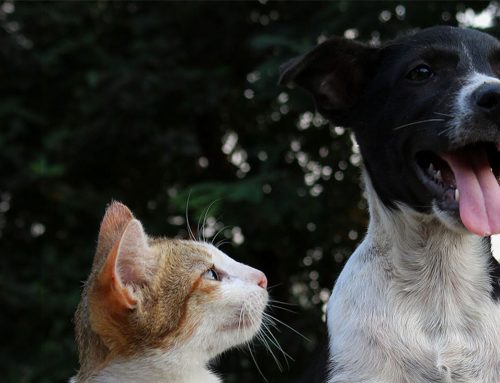The well-being of your pet is important when undergoing anaesthesia for any procedure. Anaesthetics used during your pet’s operation are extremely safe and a healthy pet undertakes minimal risk. However, it is important to remember that all anaesthetic procedures carry some risk. The death rate of clinically healthy animals during general anaesthesia averages 0.12% and rises to 4.77% for clinically sick animals.1
Prior to the anaesthesia, our staff will review the history of your pet’s health and perform a complete physical examination. Often, with respect to the clinical presentation of your pet and in discussion with yourself, blood work providing a complete physiological picture of your pet’s current health status will be recommended.
To reduce the risk of anaesthesia for your pet, we use state-of-the-art monitoring equipment and the safest anaesthetic available. All of these precautions help make anaesthesia very safe for your pet.
Levels of Testing Recommendations
Level 1: Chemistry Panel & Complete Blood Count (most common pre-anaesthetic blood tests)
Level 2: Chemistry Panel, Complete Blood Count, Urinalysis
Level 3: Chemistry Panel, Complete Blood Count, Urinalysis, Thyroid Testing, Blood Pressure, ECG
Benefits of Pre-Surgical Testing
- Determination of the safety of drugs used for pre-surgical medication as well as any that may be needed post-operatively.
- Prior to an anaesthetic, your pet will be given one or more medications to prepare for a general anaesthesia. Such medications reduce anaesthetic load on the body organs and enhance post-operative comfort. Blood tests will help determine which medications are safe and appropriate for your pet.
- Identify unseen disease
- disease detected before anaesthesia reduces the likelihood of complications during anaesthesia.
- detecting disease before clinical signs are apparent increases the likelihood of a successful outcome and often lessens the cost of treatment.
- Early identification of a problem can prevent more obvious signs of tragic illness.
- Provide surgical peace of mind
- You are doing everything possible to ensure a positive outcome for your pet’s procedure. Pre-surgical testing is fast, easy and affordable insurance for your pet’s health and your peace of mind.
- Normal test results are great! They indicate reduced risk associated with anaesthetic procedures.
- Establish healthy baseline values
- Many patients show subtle changes in their blood values over time. The changes cannot be identified without knowing the normal level for that individual patient.
- Evaluate your pet’s ability to remove the by-products of the anaesthetic medications from the body.
Chemistry Blood Tests
- ALT (Alanine Amino-transferase): increased levels of this enzyme may be a sign of liver damage or disease.
- ALP (Alkaline Phosphatase): elevations can indicate liver swelling, decreased bile flow caused by liver disease or endocrine disorders such as diabetes or Cushing’s Disease. It can also be seen as an indicator of certain bone disease.
- BUN (Blood Urea Nitrogen): BUN is made in the liver and removed from the body by the kidneys. It helps us to elevate both of these organs.
- ALB (Albumin): most important protein in the body. Low levels indicate such things as liver, kidney or intestinal disease.
- AMYL (Amylase): Amylase is an enzyme produced to help digest food. Elevated levels can indicate disease of the pancreas, intestines or kidney(s).
- Ca (Calcium): important to monitor for early signs of certain cancers. Imbalanced calcium & phosphorus levels are indicative of certain metabolic diseases such as those of the parathyroid gland & kidney(s).
- CHOL (Cholesterol): elevated levels may be an indication of a variety of disorders including hypothyroidism in dogs, liver and kidney disease.
- CREA (Creatinine): an important value to monitor kidney function.
- Na, K, Cl (Electrolytes): Potassium levels are important for normal muscle function & heart rate. Sodium levels are important for body fluid balance. Both are critical to your pet’s health & aid in the diagnosis & treatment of several life threatening diseases.
- GGT (Gamma Glutamyl Transferase): measurement & monitoring is important for differentiating types of liver disease.
- GLOB (Globulin): a body protein that indicates problems such as inflammation, infection or tumour.
- GLU (Glucose): elevated levels can indicate problems such as diabetes. Low levels can be associated with liver disease, Addisons disease, pancreatic tumour or intestinal disease.
- PHOS (Phosphorus): important to monitor kidney disease as well as its balance with calcium.
- T4 (Thyroxine): an excellent screening test for function of the thyroid gland in dogs and cats. The thyroid gland plays a major role in metabolism.
- Tbil (Total Bilirubin): an important value to evaluate the liver and when there is a low red blood cell count.
- TP (Total Protein): we utilise this value to determine many conditions such as anaemia & disease of the liver, kidneys and gastrointestinal tract.
Haematology Blood Tests
The Complete Blood Count (CBC) is a test that provides measurements of red blood cells, white blood cells and platelets. The CBC is an important tool that can detect conditions such as anaemia, leukaemia and other blood disorders as well as assess stress levels, inflammation, infection and blood clotting capabilities.
CBC Components
Red Blood Cells (RBCs) carry oxygen to the tissues of the body and transport carbon dioxide to be exhaled by the lungs. Anaemia results when RBCs are not present in sufficient numbers. Determination of the cause of anaemia is vital.
White Blood Cells(WBCs) play a major role in your pet’s immune system function. Normal baseline levels are very important to determine the importance of changes seen with infection or inflammation. Elevations noted without signs or symptoms can help us treat your pet more effectively.
Platelets are a crucial component of the blood clotting system. Adequate numbers must be present to prevent or stop bleeding. Therefore, it is very important that platelet numbers are known prior to any surgical procedure being performed & to identify clotting issues before they become critical in the non-surgical patient.
Coagulation Testing
In addition to platelets, a system called the coagulation cascade must be working to control and stop bleeding. Genetics, medications and toxins can affect this coagulation cascade.
- Risk of anaesthetic mortality in dogs and cats: an observational cohort study of 3546 cases. Vet Anaesth Analg. January 2012;39(1):59-68.






